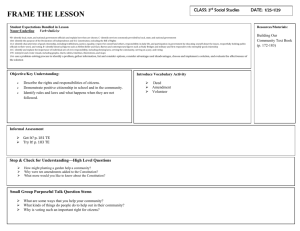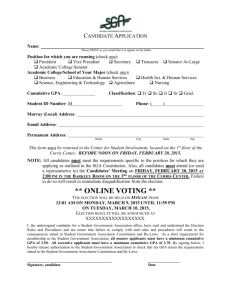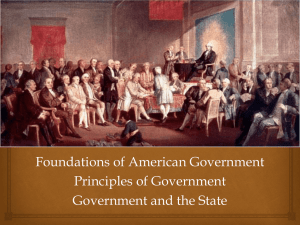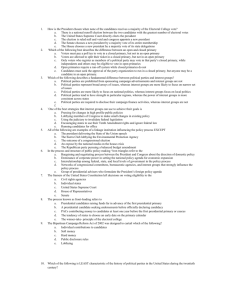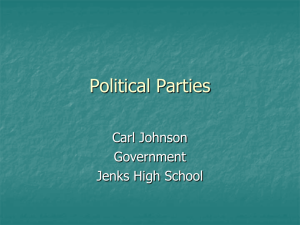(Un-ratified) Constitution of Campus Anti-war Network
advertisement
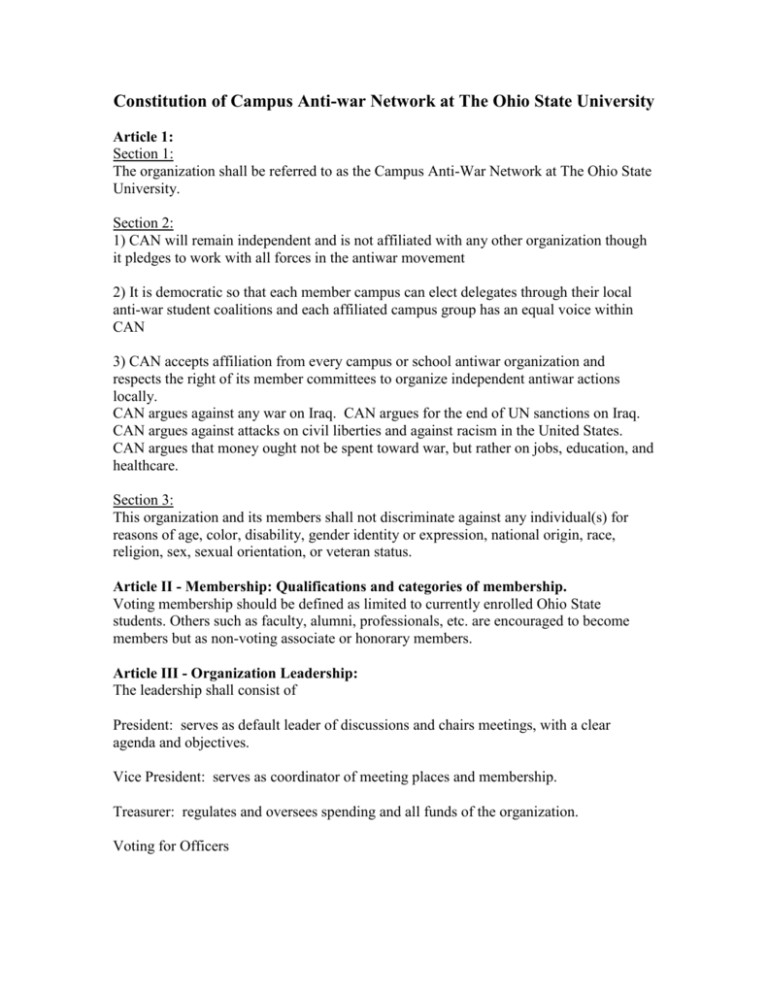
Constitution of Campus Anti-war Network at The Ohio State University Article 1: Section 1: The organization shall be referred to as the Campus Anti-War Network at The Ohio State University. Section 2: 1) CAN will remain independent and is not affiliated with any other organization though it pledges to work with all forces in the antiwar movement 2) It is democratic so that each member campus can elect delegates through their local anti-war student coalitions and each affiliated campus group has an equal voice within CAN 3) CAN accepts affiliation from every campus or school antiwar organization and respects the right of its member committees to organize independent antiwar actions locally. CAN argues against any war on Iraq. CAN argues for the end of UN sanctions on Iraq. CAN argues against attacks on civil liberties and against racism in the United States. CAN argues that money ought not be spent toward war, but rather on jobs, education, and healthcare. Section 3: This organization and its members shall not discriminate against any individual(s) for reasons of age, color, disability, gender identity or expression, national origin, race, religion, sex, sexual orientation, or veteran status. Article II - Membership: Qualifications and categories of membership. Voting membership should be defined as limited to currently enrolled Ohio State students. Others such as faculty, alumni, professionals, etc. are encouraged to become members but as non-voting associate or honorary members. Article III - Organization Leadership: The leadership shall consist of President: serves as default leader of discussions and chairs meetings, with a clear agenda and objectives. Vice President: serves as coordinator of meeting places and membership. Treasurer: regulates and oversees spending and all funds of the organization. Voting for Officers Before the end of the tenth week of spring quarter officers for the next academic year must be elected by the members. A meeting when the elections will take place must be designated two weeks in advance and announced to all members. Nominations may be taken in the week leading up to the meeting or at the meeting itself. In order to be nominated for an officer position, a member must be a voting member and must have completely read the Forensics Constitution and be aware of that position's responsibilities. All those nominated are given a maximum of 3 minutes to give a speech laying out their position. Candidates who are not elected to a position may choose to run for another position. In the event that no candidate receives a majority in an election with 3 or more candidates, a run-off election is held for the 2 candidates with highest number of votes. In the event that an officer position is vacated in the middle of the year, a special election can be called by any of the officers. Special Election: During a regularly scheduled meeting any member can propose that an election be held to determine the officer positions. At this point 2/3rds of the voting members must approve that a vote take place and all candidates for the position will have an opportunity to present their position in 3 minutes. Votes are then taken of all present members. The candidate with a majority of votes will be elected. Amending the Constitution A change to the constitution must be proposed to an officer in writing and presented at a team meeting. The time and place of another meeting where the vote will occur is announced. At the second meeting the amendment is approved by a vote of 2/3 of the total membership. Ratifying the Constitution This Constitution shall come into force when approved of 2/3 vote by the general body.


